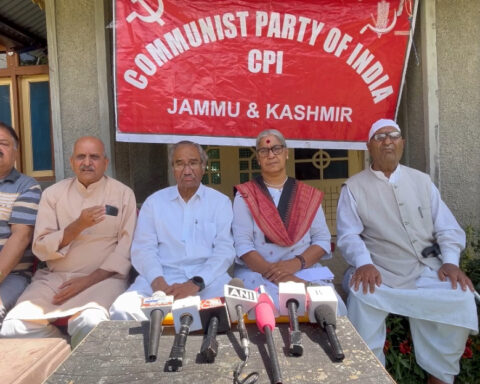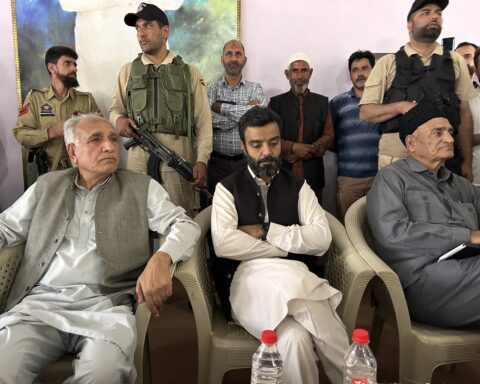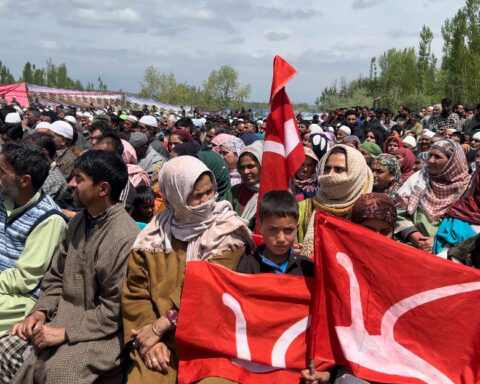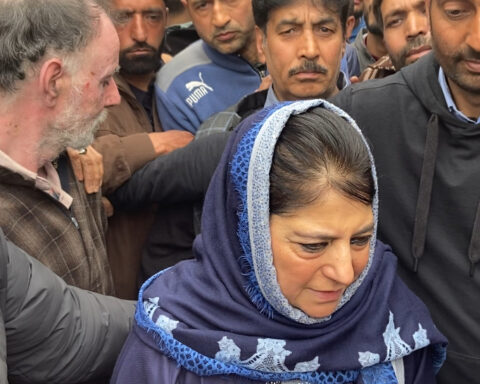The conundrum of the Nehru-Gandhi family and the Congress has been with us for some years and acquires a life of its own, especially in the media, particularly when the party loses elections. Here is a recall from history which might be useful for Congress to consider.
In the 1989 Parliament election, under the leadership of Prime Minister Rajiv Gandhi, the Congress failed to secure 50 per cent of the House. But the Congress leader still had way more seats than his main challenger, VishwanathPratap Singh (197-143). As such, President R. Venkataraman invited Rajiv Gandhi to form the government before exploring other options, but Mr Gandhi declined the offer, saying that he had lost the election. He had the option to carry on, but didn’t.
This is an example Mrs Sonia Gandhi could have followed with benefit after her party’s comprehensive defeat in the five state Assembly polls recently but didn’t. This was a defeat more stinging and morale-sapping than the one in the 2019 LokSabha election because on all the normal parameters — very poor governance, very bad economic performance, very shoddy handling of the Covid-19 pandemic and discriminatory approach towards the minorities that is disturbing in its intensity — the BJP should have lost badly, especially in Uttar Pradesh, but it won in thumping fashion.
Mrs Gandhi made a feeble offer to step down. That was neither here nor there. What is needed is an orderly withdrawal process, properly announced. The Congress as a whole needs to consider: Is staying on by the Gandhis the best way to keep the party together? Is it even the best way to enhance the reputation of the Gandhis?
To be fair to her, Mrs Gandhi has said there will be party elections in a few months. Therefore, it is in order for her not to quit in dramatic fashion, post-defeat.
She does need to ensure orderly polls. This is where Rahul Gandhi erred in 2019. He honourably resigned as party president after the Congress’ defeat in the LokSabha polls but just moved away and did not guide the party into electing a new leader. He paid the price for this faulty tactic. In the Congress culture of rampant sycophancy, he just ended up being the de facto leader, a sort of “extra-constitutional authority” — a familiar expression in the Emergency era that attached to his uncle Sanjay.
In that sense, Mrs Gandhi has shown wisdom. She was not blown away by the gratuitous advice of some in the G-23 to “step away” along with her children. She reminded the G-23 that the election for the top party bodies and for party chief was only months away. In that case it would indeed be comic to have the party leader replaced now and then again in three or four months.
However, what Sonia Gandhi could have fruitfully done was to ask all the party general secretaries, including her daughter Priyanka Gandhi Vadra, to resign and not only the PCC presidents of the five states where the elections were lost. This would have ended the factional infighting and, importantly, convey the political and ideological message of non-“parivarvad” (non-dynasty politics).
More than anywhere else, this is likely to have caused tremors in the ruling BJP, for that party’s main political propaganda has been that the Gandhis have developed a sense of entitlement and a vested interest in sticking to the chair. This is a message that is avidly lapped up, and so powerful is the saffron false news department operating through one crore or more WhatsApp accounts dedicated to denigrating opponents.
Ms Vadra campaigned vigorously and with elan in UP, and put the Congress on the campaign map, although the party had no leg to stand on, organisationally. Hoping for a decent showing was therefore academic. Nevertheless, the answerability is hers alone. As for Mr Gandhi, her brother and senior Congress leader, he does not occupy a party post and could not have been dropped from one.
But as interim Congress president, which today looks like being a caretaker position till fresh arrangements are made, Mrs Gandhi can still announce an ad hoc advisory committee of senior advisers drawn from different states, effectively suspending the present Congress Working Committee, who are an ad hoc bunch anyway, being nominees of the party chief. An elected Working Committee will be in place anyway in the foreseeable future and the newly elected chief can add his/her nominees, as permitted by the party constitution.
Creating an advisory committee to help the chief with the crucial party polls will take Mr Gandhi out of the equation for the present. Whether Mrs Gandhi takes such a step is moot. She is, in fact, not required to do so. But what she can possibly ensure is that neither of her children will contest for the post of party president in this election.
In 2019, Mr Gandhi had made a statement precisely to this effect. It is time to honour it. That said, there is no arrowhead in the Congress more powerful than Mr Gandhi to take on majoritarianism and communalism in public life and government policy. In fact, this is true across parties. Mr Gandhi can with profit to the country speak and write about these themes, safely ignoring the unfathomably curious advice that the Gandhis must relinquish politics altogether, not just leave party posts.
For some four decades, the Congress has been nothing more than a party that can run governments, when elected. Otherwise, its leaders have shown themselves to be a pack of lethargic, squabbling dandies, and the “G-23” (of which one has defected to the BJP and one to the NCP) are a good example.
In effect, Congress has left a huge ideological vacuum in the public sphere (notwithstanding Mr Gandhi’s spirited interventions), permitting the saffron family a clear field even before Narendra Modi arrived on the scene. This is why it is now absent from the election map. Indeed, this can be said for almost all non-BJP parties, as the recent polls showed.
Toughening the party organisation can’t happen without the scaffolding of an anti-communal ideology, persuasively advanced. Nor can the coming together of centrist, leftist and non-majoritarian forces to challenge the religious right. The late MohitSen, a stalwart ideologue, was derided by the Left for suggesting that the Right would dominate if the Left misread Congress altogether as a predominantly reactionary outfit. The irony is that today the RSS-BJP attack Congress for being too “left-liberal” and “pro-minorities”, and many in the party take fright.
(This article has first appeared in Asian Age)








